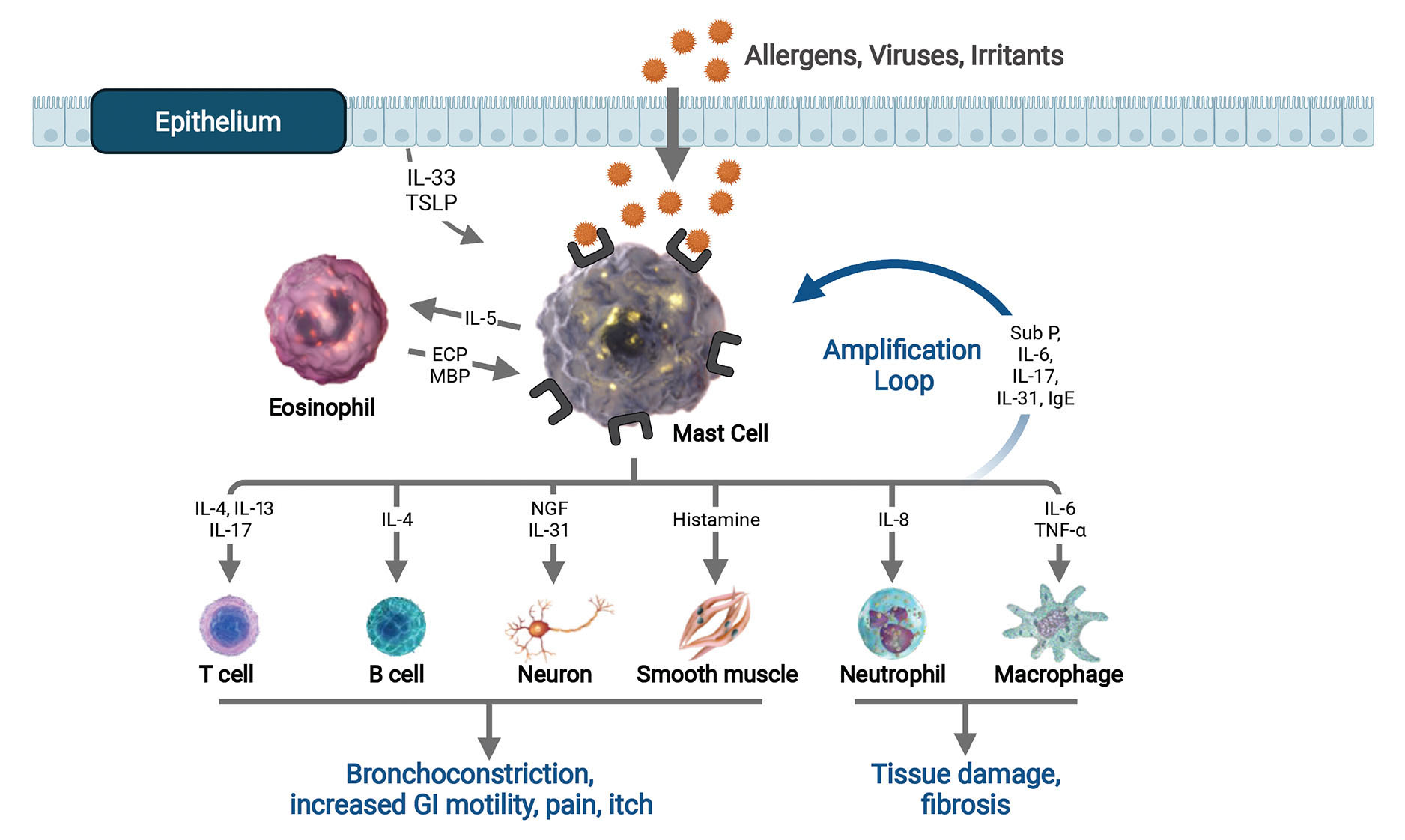Inhibitory receptors play an important role in controlling the immune response. Physiologically, the role of inhibitory receptors is to decrease the immune response thereby resolving inflammation. Because of this function, inhibitory receptors are often referred to as immune checkpoints. We develop monoclonal antibodies that activate or block inhibitory receptors on immune cells. Activating inhibitory receptors with agonist antibodies allows us to selectively inhibit cells involved in disease pathogenesis and, in the setting of allergy and inflammation, has the potential to reduce inflammation. In addition, agonist antibodies that target inhibitory receptors have the distinct advantage of counteracting multiple activation pathways and therefore have the potential to reduce inflammation more broadly than targeting a single cytokine or receptor pathway. Moreover, because tumors can utilize inhibitory receptors to avoid detection by the immune systems, blocking an inhibitory receptor with an antagonist antibody can restore the immune system’s ability to identify and kill tumor cells.
Mast Cells are Key Drivers of Inflammation
Mast cells are found at the internal/external interfaces of the body, in particular at mucosal surfaces, surrounding blood vessels, and in close proximity to peripheral nerves. They produce a broad range of inflammatory mediators including vasoactive amines, bioactive lipids, proteases, cytokines and chemokines and express many immunologically important cell surface receptors. As a result, mast cells are involved in both innate and adaptive immune responses, and participate in both acute and chronic inflammation. Because of the inflammatory mediators they release and their ability to recruit and activate other immune cells through expression of chemokines and cytokines, mast cells are believed to drive symptoms in a number of diseases. Agents targeting mast cell receptors or secretion products have shown utility in the treatment of a number of diseases including chronic urticaria, atopic dermatitis, severe asthma, chronic rhinosinusitis, eosinophilic gastrointestinal diseases, indolent systemic mastocytosis, highlighting pathogenic roles of these cells. By targeting inhibitory receptors on mast cells, Allakos is seeking to produce drugs with advantages over agents that target a single secretion product or receptor pathway.
Mast Cells are Key Drivers of Inflammatory Disease
Publications & Presentations
| Date | Focus | Title of Publication |
|---|---|---|
| June 2024 | Preclinical |
European Academy of Allergy and Clinical Immunology (EAACI) Annual Meeting |
| February 2024 | Preclinical |
American Academy of Allergy Asthma & Immunology (AAAAI) Annual Meeting |
| January 2024 | Preclinical | Regulation of Mast Cells by Overlapping but Distinct Protein Interactions of Siglec-6 and Siglec-8
Allergy |

